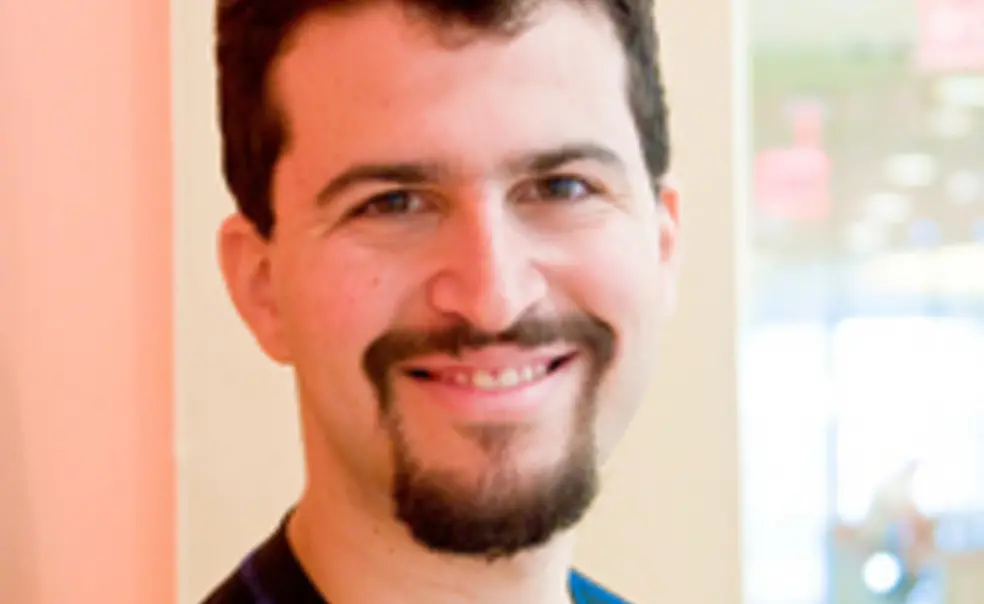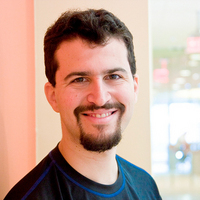Tiger of the Week: Erez Lieberman Aiden '02
(Eliza Grinnell, Harvard School of Engineering and Applied Sciences)
(This is a corrected version of an earlier post. Aiden majored in mathematics, not philosophy, at Princeton, but completed two theses: "After Truth: Philosophical and Mathematical Explorations on Language, Induction, and Meaning"; and "Sphere Packing, Generalization Graphs, and Finite Languages.")
In the Dec. 2 issue of Science, Erez Lieberman Aiden ’02 recalls seeing the film Powers of Ten as a child, in which the camera zooms out to view the universe as a whole and then zooms back in to view life at a molecular level, coming to rest inside a single proton. Aiden writes in an essay titled “Zoom” that the views were “breathtaking” and the idea inspiring: “I realized that if, one day, I could hold that magical camera — examining a phenomenon at a new scale, however briefly — I would see things that had not been seen before.”
Aiden’s essay, and his related research “creating maps that enable researchers to zoom in on the human genome and reveal features of DNA structure inside the nucleus,” has earned him the 2011 GE & Science Prize for Young Life Scientists, the American Association for the Advancement of Science announced Dec. 1. The international honor comes with a $25,000 prize and a trip to Stockholm, Sweden, where the award will be presented Dec. 9.
Scientific honors are nothing new for Aiden, a mathematics major at Princeton who earned his Ph.D. in applied mathematics from Harvard in 2010. That year, he received the Lemelson-MIT Student Prize for a range of innovations in mathematics, engineering, molecular biology, and linguistics. Earlier this fall, he received $2.5 million in funding from the National Institutes of Health’s New Innovator program.
While Aiden’s specific projects are impressive, his wide range of interests is even more notable. According to a June 2011 profile in Discover magazine, Aiden seeks out research in areas beyond his expertise. “The reason is that most projects fail,” he explained. “If the project you know a lot about fails, you haven’t gained anything. If a project you know relatively little about fails, you potentially have a bunch of new and better ideas.”
Do you have a nominee for Tiger of the Week? Let us know. All alumni qualify. PAW's Tiger of the Week is selected by our staff, with help from readers like you.













No responses yet